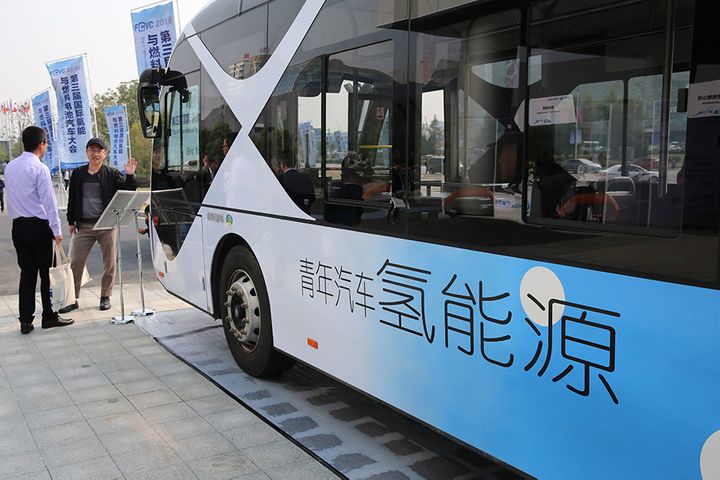 MOF Rebuffs SAIC Head's Bid to Extend Hydrogen Fuel Cell EV Subsidies
MOF Rebuffs SAIC Head's Bid to Extend Hydrogen Fuel Cell EV Subsidies(Yicai Global) Oct. 15 -- Subsidies for hydrogen fuel cell electric vehicles must be cancelled on schedule in accordance with established policy, the Ministry of Finance said recently on its website, in reply to a suggestion to continue to subsidize fuel cell EVs proposed by SAIC Motor president Chen Hong.
Financial subsidies for full-electric vehicles, plug-in hybrid EVs and hydrogen fuel cell EVs will completely end next year, according to an earlier notice the ministry released.
Chen proposed that the ministry should continue to subsidize fuel cell electric vehicles after 2021 at the national 'two sessions' legislative held in Beijing in March.
In terms of policy design, the ministry said that on one hand the subsidies shall end on schedule in accordance with established policy, while on the other hand, preferential non-fiscal and tax policies targeting new energy vehicles such as no traffic restrictions based on license plate numbers will continue, the ministry said in its reply to the proposal. Also, local governments are urged to introduce policies for construction and operation of charging infrastructure and NEV use to drive their promotion in a practical way.
Many problems still beset China's hydrogen fuel cell EVs even after years of substantial policy support.
Fuel cell vehicle's high costs and weak industrial base had prompted the ministry to leave subsidies unchanged in previous policy adjustments, it said in its reply. Local governments are also still free to continue subsidies toward hydrogen fuel cell EVs, though they have generally been directed to end local purchase subsidies, it noted. However, some firms have had difficulty in coping with global market competition as long-term subsidies had induced their reliance on government policy.
China's fuel cell vehicle industry has made no breakthroughs thus far, and the sector has undergone no fundamental changes even with long-term and substantial government support.
China also lacks the conditions for fuel cell vehicles' mass promotion and adoption as the country has made no breakthroughs in core fuel cell vehicle technology and components technology, has not built up adequate infrastructure, lacks standards and laws and has devised no system to manage hydrogen as energy, said Song Qiuling, counselor at the ministry's Department of Economic Construction.
Nationwide hydrogen fuel cell EV makers actually manufactured six such cars and sold four in July, earlier China Association of Automobile Manufacturers data show.
The 'two sessions' is shorthand for China's National People's Congress and the Chinese People's Political Consultative Conference. They are called the 'two sessions' as these two meetings roughly overlap and are key to the functioning of the country.
The second session of the 13th NPC opened on March 5 in Beijing this year, while the second session of the 13th national committee of the CPPCC started in the Chinese capital on March 3.
Editor: Ben Armour